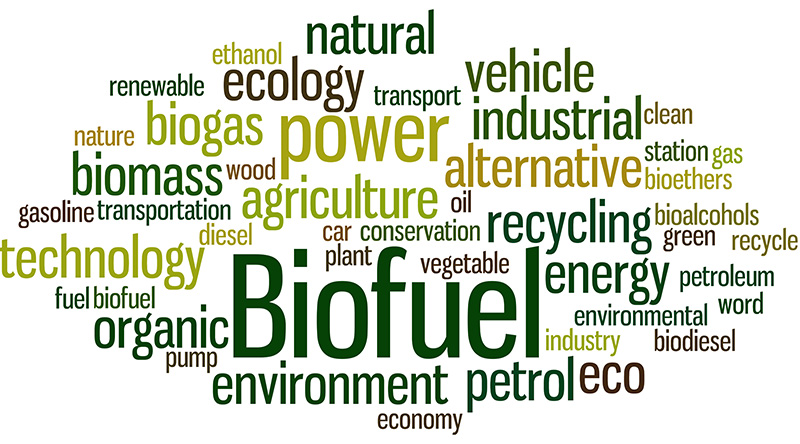
The Ethical Imperative of Biofuels: A Comprehensive Exploration
Introduction
The article, titled “The Ethical Imperative of Biofuels: A Thought Leader’s Perspective,” aims to provide a comprehensive exploration of the ethical considerations surrounding biofuels. It delves into the historical background, key concepts, and main discussion points related to biofuel production and consumption. The article also presents case studies, current trends, challenges, and controversies surrounding biofuels, and provides a future outlook for this industry. The goal is to promote further research and civic engagement in sustainable energy solutions.
Historical Background
Biofuels have a long history dating back to ancient times when vegetable oils were used for lamps and cooking. However, the modern biofuel industry took shape during the 20th century as the need for alternative energy sources became apparent. Milestones such as the invention of the diesel engine and the discovery of ethanol as a fuel additive played crucial roles in the development of biofuels. These advancements paved the way for the widespread production and use of biofuels, making them an integral part of the energy landscape.
Key Concepts and Definitions
Biofuels, as defined by the International Energy Agency, are derived from biomass, including crops, agricultural residues, and waste materials. They can be categorized into first-generation biofuels, which are produced from edible crops like corn and sugarcane, and second-generation biofuels, which are made from non-edible feedstocks like cellulosic biomass. The ethical imperative of biofuels lies in their potential to reduce greenhouse gas emissions and dependence on fossil fuels, offering a more sustainable and environmentally friendly energy solution. Thought leaders, in the context of biofuels, are individuals who possess expertise and influence in shaping ethical perspectives and policies related to this field.
Main Discussion Points
Environmental Impact:
The article explores the environmental impact of biofuels, highlighting their potential to reduce carbon emissions and mitigate climate change. However, it also acknowledges potential negative consequences such as deforestation, biodiversity loss, and increased water usage associated with certain biofuel feedstocks. These ethical concerns must be carefully weighed against the environmental benefits.
Social and Economic Implications:
The social and economic implications of biofuels are significant. The article discusses how biofuel production can promote energy independence and rural development in many regions, creating jobs and stimulating local economies. However, ethical considerations arise in relation to land use, food prices, and social equity. The use of arable land for biofuel crops may compete with food production, leading to higher prices and potential food shortages. Additionally, social inequalities may arise if the benefits of biofuel production are not evenly distributed among communities.
Policy and Governance:
The article emphasizes the importance of policy and governance issues in shaping the biofuel industry. Regulatory frameworks and international agreements are essential in ensuring sustainable biofuel production and consumption. However, striking a balance between economic interests and sustainability poses ethical dilemmas. Policy decisions must consider the environmental and social impacts of biofuels while also fostering economic growth and energy security.
Case Studies or Examples
Impact on Indigenous Communities:
A case study examines the potential ethical implications of large-scale biofuel projects on indigenous communities. It highlights issues such as displacement, loss of land rights, and cultural disruption. Respecting the rights and priorities of indigenous peoples in biofuel development is crucial.
Policy Implementation Challenges:
Another case study focuses on the successes and challenges faced in implementing biofuel policies in a specific country. It explores the ethical dimensions of policy decisions and the need for tailored approaches to biofuel implementation in different socio-political contexts.
Large-scale Production in Developing Nations:
This case study delves into the ethical implications of large-scale biofuel production in developing nations. It addresses potential social and environmental consequences, emphasizing the need for sustainable development and the ethical treatment of local communities.
Current Trends or Developments
The article discusses recent advancements in biofuel technology and research that have opened up new possibilities for sustainable energy solutions. Innovations such as algae-based biofuels and synthetic biology hold promise for increased efficiency and reduced environmental impacts. However, these emerging biofuel feedstocks also present ethical considerations, such as potential impacts on ecosystems and biodiversity. Balancing technological advancements with ethical scrutiny is crucial for ensuring sustainable and socially responsible biofuel developments.
Challenges or Controversies
The net environmental benefits of biofuels have been a subject of debate. While biofuels can reduce greenhouse gas emissions compared to fossil fuels, certain feedstocks and production methods may have unintended consequences. The article explores the controversy surrounding indirect land-use change and emissions associated with biofuel production, emphasizing the need for careful assessment of the overall environmental impact.
The use of food crops for biofuel production is another topic of contention. Critics argue that diverting crops from food production to biofuels can exacerbate food scarcity and increase prices, particularly in vulnerable regions. Balancing the need for energy security with the availability of affordable food is an ethical dilemma that must be addressed in biofuel policies.
Future Outlook
The future role and prominence of biofuels will depend on various factors, including technological advancements, policy frameworks, and societal priorities. As renewable energy gains momentum, biofuels are expected to play a significant role in mitigating climate change and achieving sustainability goals. However, the evolution of biofuels will also require addressing ethical considerations related to land use, food security, and social equity. Continued research and innovation, coupled with informed policy decisions, will shape the future of the biofuel industry.
Conclusion
“The Ethical Imperative of Biofuels: A Thought Leader’s Perspective” emphasizes the importance of considering ethical dimensions in the production and consumption of biofuels. By examining the historical background, key concepts, main discussion points, case studies, current trends, challenges, and controversies, the article reinforces the ethical significance of biofuels in addressing climate change. It calls for further research and civic engagement in shaping the future of this industry.